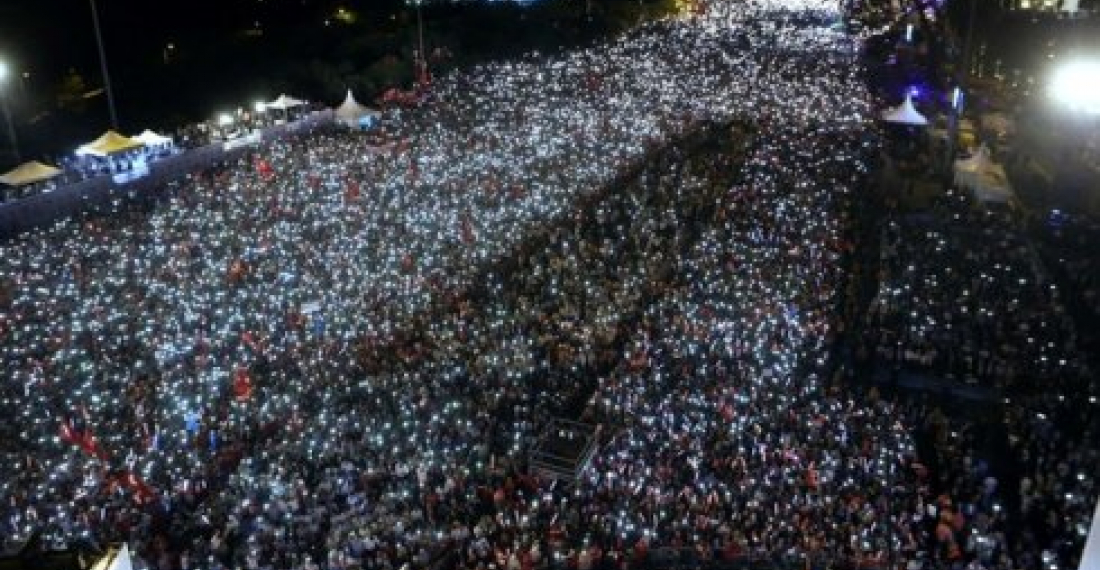Millions of people took to the streets of Turkey's cities on Saturday night (15-16 July) to mark the 1st anniversary of the failed coup that has since continued to define Turkey's politics. Hundreds of thousands of people gathered for the "national unity march" Saturday at the Bosporus Bridge where putschists killed dozens of civilians in Istanbul last year on the night of the coup attempt.
The bridge has since been renamed Bridge of the Martyrs of July 15.
President Recep Tayyip Erdogan and Prime Minister Binali Yıldırım also joined the march. Across the country citizens watched Erdogan's speech on large television screens placed at city centres as people attended all night vigils. President Erdogan later travelled to Ankara to address the Parliament in a midnight ceremony to mark the bombing of the parliament during the coup atempt. President Erdogan promised that he will not allow anyone to forget the coup, and the heroism of the people who resisted it.
Some 32 civilians and two police officers were killed when they confronted the putschists taking over Istanbul's Bosporus Bridge on July 15 during the coup attempt which the Turkish government blames on the religious sect that is led by exiled cleric Fetulah Gulen.
The takeover of the bridge was one of the iconic moments during the coup bid. A large crowd of civilians and police officers had streamed onto the bridge connecting the city's Asian and European sides to convince the soldiers to surrender.
July 15 has been declared a national holiday in Turkey.
Public transportation in Istanbul and Ankara is free over the weekend and bus destination signs displayed messages of congratulations.
As they did on the night of the 2016 coup attempt, after midnight mosques across Turkey simultaneously recited a verse, usually read before Friday prayers, to alert and invite Muslims to the streets.
source: commonspace.eu with Turkish media
photo: Millions of Turks took to the streets of major cities on Saturday for an all-night vigil to mark the 1st anniversary of the failed 15 July coup. (picture courtesy of Daily Sabah newspaper)






